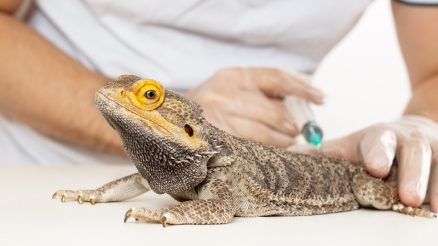When it comes to our beloved furry friends, ensuring their safety and health during any procedure is our top priority. If you’re facing the prospect of pet surgery, understanding the necessary pre-operative tests can make the experience less stressful for you and your pet. These tests are crucial checks that pave the way for a successful outcome and a smooth recovery.
Veterinary Surgery and Pet Safety
The thought of our pets needing surgery can be daunting. However, with advancements in veterinary medicine, surgical procedures have become increasingly routine components of pet care. Before your pet undergoes any form of pet surgery, conducting a thorough assessment is essential to ensure their safety. This involves a series of pre-surgery tests that give your vet important information about your pet’s health status.
Why Pre-surgical Testing is Critical
Think of these tests as a background check on your pet’s health. They help to:
-
Uncover any underlying conditions that might complicate the anesthesia or surgery
-
Provide a baseline to compare against postoperative results
-
Give your vet the necessary info to tailor anesthesia and pain management to your pet
The Common Pre-surgery Tests
So, what specific checks are we talking about? Below are some of the standard tests your vet might recommend before your pet heads into surgery:
Blood Work
The pre-op blood panel is like a window into your pet’s internal health. It usually includes:
-
A Complete Blood Count (CBC) Reveals information about red blood cells, white blood cells, and platelets.
-
A Blood Chemistry Panel: Assesses organ function and electrolyte levels.
Urinalysis
A urinalysis can detect problems with your pet’s kidneys and urinary tract, which can be particularly important when going under anesthesia.
Imaging
Images such as X-rays or ultrasounds help vets visualize what’s happening inside your pet’s body. These tests can reveal conditions that might not be apparent from the outside.
Electrocardiogram (ECG)
An ECG can monitor cardiac function to prevent complications during surgery for pets with a known heart condition or those at risk.
Assessing Anesthesia Risks
Anesthesia is a routine part of pet surgery, but it has risks. Pre-surgery tests help vets understand those risks and manage them effectively. They’ll usually closely examine your pet’s liver and kidney function, as these organs are vital to processing anesthesia.
Further Diagnostic Testing
If initial tests indicate a potential problem, your vet might go for more advanced diagnostics like:
-
Biopsies of masses or abnormalities found during physical exams
-
More specialized blood tests for specific conditions
Each pet is also assessed individually – age, breed, and health history all play a part in determining the extent of pre-surgery screening.
Veterinary Dentistry and Dental Surgery
Moving on from general surgery, dental health is another critical area for our pets. Often overlooked, issues like tartar buildup, gum disease, and broken teeth can lead to significant health problems. If you seek a professional pet dentist, they’ll likely recommend similar pre-surgery tests to ensure safe anesthesia and a successful dental procedure.
Regular dental checkups and cleanings can prevent many of these issues from developing into more significant problems that require surgery. It’s just one more reason to keep those pearly whites in check.
The Role of Fasting and Medication Management Pre-surgery
Fasting before surgery is a common requirement for pets, just as it is for humans. This empty stomach policy aims to reduce the risk of vomiting during and after anesthesia, which can lead to dangerous complications.
Additionally, the vet might adjust dosages before the operation if your pet is on any medication. It’s crucial to discuss all of your pet’s medications with the vet during the pre-surgery consultation.
On the Day of Surgery
When the day of surgery arrives, your pet’s care team will leverage all the information gathered from the pre-surgery tests to ensure everything goes smoothly. This includes monitoring vital signs closely and being prepared to react to unexpected events.
Post-surgery Follow-Up
The tests don’t end once the surgery is over. Post-op, your vet will keep an eye on recovery, comparing the pre-surgery baseline with current tests to ensure your pet is on the right track to getting back on their paws.
Understanding Pet Surgery Costs
We all worry about our pets, but sometimes, that worry comes with a dollar sign. Costs can vary widely based on the type of surgery, the diagnosis, your location, and the care required afterward. Remember to ask your vet for an estimate and discuss any financial concerns you might have upfront.
Finding Quality Care
When our pets need medical attention, we often search the internet for “groomers near me” or “best vet in town.” But when it comes to surgery, you want to ensure your pet is in the hands of experienced professionals. After all, a good haircut is one thing, but surgical care is a different ball game.
Take the time to research and visit facilities, meet with the veterinary surgical team, and read reviews. Your peace of mind is worth it.
Wrapping Up
Whether preparing your pet for a routine spay/neuter, intricate surgery, or dental work, understanding the importance of pre-surgery tests is vital. It’s about more than just ticking boxes; it’s about safeguarding your furry family member’s well-being.
Regular checkups, staying vigilant for signs of illness, and keeping up with dental care are all ways we can minimize the chances of emergency surgeries. And remember, when it comes to pet health, the more you know, the better you can advocate for your companion’s care.





